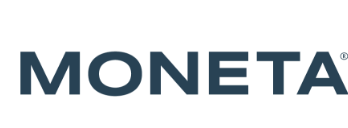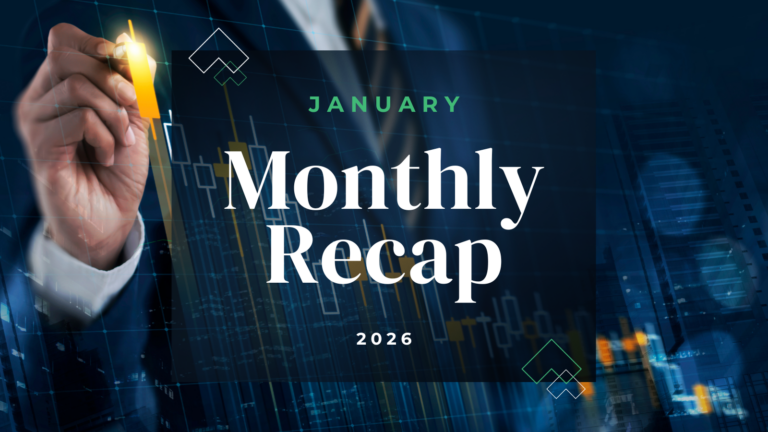“The problem isn’t getting rich, it’s staying sane.”
-Charlie Munger[1]
The current environment is rife with uncertainty. Following two seismic events, the COVID-19 pandemic and the first ground war in Europe since World War II, investors have also had to grapple with the most rapid rate hiking cycle from the Federal Reserve since 1980, deteriorating relations between the United States and China, the two largest economies in the world, a downgrade in the credit rating of the U.S., the country behind the global reserve currency, and a war in the Middle East. As we enter 2024, a major election year for many countries around the world, the heightened geopolitical consternation appears poised to continue.
This is our third and final part of a three-part series designed to provide some context and insights into the current macroeconomic environment:
- Part 1: Where are we now? A review of the current geopolitical environment to determine whether things are different today and to help set the stage for an understanding of how geopolitics affects markets.
- Part 2: Where are we going? A review of long-term trends potentially forming.
- Part 3: What should we do? A practical guide on how to invest around geopolitical uncertainty.
Part 3: What should we do?
Parts 1 and 2 of this series reviewed the current macroeconomic environment and, while recognizing that few predictions ever play out exactly as expected, provide some guidance on where world order might be headed. Neither of these pieces provided much in the way of direct investment advice, but as disciplined investors, it is important to be able to understand the world for how it is so that we can make fully informed investment decisions.
When thinking about geopolitics, it is very easy to sensationalize the uncertainty and fret that drastic actions are necessary to achieve one’s investment goals. Moneta has long promoted the philosophy of thinking long-term, yet that is far easier said than done. 2034 seems much farther away than 2014 and the bias to action – to “not just stand there” but to “do something” – is felt daily.
Any answer to the question of, “What should I do?” at minimum, must understand the following dynamics of portfolio construction: portfolio objectives, how a portfolio is diversified, and the dangers of market timing. We will begin this piece with a quick review of some basic tenets of our portfolio construction philosophy. Next, we will address how one might consider the dynamics discussed in Part 2 – inflation and higher rates, a reshaping of political alliances, a focus on energy security, and fears of the U.S.’s global leadership declining – in a portfolio. Lastly, we address two common questions we have received over the last couple of years: “Should I buy gold and defense stocks?” and “What will happen if China invades Taiwan?”
Portfolio Objectives
Fundamental to any discussion on what to do with one’s portfolio is an understanding of the portfolio’s objective. At Moneta, every portfolio is carefully constructed, considering each investor’s unique situation (time horizon, liquidity needs, taxes, return objectives, and risk tolerance). Our baseline multi-asset portfolios are built with the goal of setting up clients’ portfolios for a high probability of success in meeting their objectives.
Our Investment Beliefs provide a more thorough explanation of our philosophy, but most relevant to the topic of geopolitics are two outcomes from this goal: Diversification and staying invested.
Diversification
Diversification is a commonly accepted principle of investing, yet it can also be a constant source of discontent in an investor’s portfolio as no asset class is uniformly at the top or the bottom of various asset class returns. Return chasing is a constant temptation for investors, but also a sure-fire way to negatively impact wealth creation due to unnecessary turnover of the “losers” for the “winners”. Importantly, a diversified portfolio should never be expected to outperform the best performing asset class over a long period of time, instead it should give an investor a better chance of achieving a reasonable rate of return for a given level of risk.
The simple chart below highlights this dynamic, as the S&P 500 Index returned nearly 18,000% from 1/31/1976 to 12/31/2023, while the Bloomberg U.S. Aggregate Index only returned 2,021% over the same time period. Even though a hypothetical 60% S&P 500 Index and 40% Bloomberg U.S. Aggregate portfolio still underperformed the S&P 500 Index (total return of 8,510%), it achieved this return with lower volatility – over this time period, the S&P 500 Index had an annualized volatility of 15.1% vs the 60/40 blend’s annualized volatility of 9.8% – and only saw a max drawdown of 33%, whereas the S&P 500 Index had a maximum drawdown of 51%.

Avoid Market Timing
A common response to geopolitical fears is to buy more defensive assets such as gold or military-related defense stocks. We will discuss these assets in more detail below, but even temporary moves away from one’s long-term asset allocation due to geopolitical fears can have a drastic impact on long-term performance. To illustrate this, we reviewed daily returns for the S&P 500 Index over the last 20 years to determine the impact of missing the best days of market performance:

As the chart highlights, buying and holding the S&P 500 Index would have given an investor an annualized return of 9.6% over the last 20 years (5,033 trading days). Missing the 10 best days would have cut this return almost in half to 5.5%, and missing the best 40 days would have resulted in a negative rate of return.
Investing In the Current Geopolitical Environment
How much, if any, of one’s portfolio should be allocated to the following asset classes cannot be answered without a better understanding of one’s ability and willingness to take risk. However, with some basis for portfolio construction established, we can better answer the question of, “What should we do?” in response to the current geopolitical environment.
As we look at each long-term trend potentially forming in the shifting world order, it is notable that a globally diversified portfolio of stocks and bonds already addresses many of the concerns:
- Inflation: Stocks have historically been a strong hedge against inflation, since companies can raise prices to combat higher input costs and protect their margins. Moneta’s focus on quality managers provides a natural tilt towards companies with higher pricing power.
- Higher rates: At the end of 2013, the Bloomberg U.S. Aggregate Index had a yield of 2.5%. Today, that yield is closer to 4.5%. While painful to get there, higher yields (nominal and real) provide a much better starting point for bonds and offer an opportunity to shift one’s risk asset allocation without sacrificing a meaningful amount of potential return.
- Increasing focus on energy security: Exposure to energy markets is already present in equity markets. Finding companies that are poised to generate excess returns beyond potential commodity pricing gains is a task we delegate to our active managers with deep industry expertise.
- Reshaping political alliances and the potential decline of U.S. leadership: Maintaining exposure to non-U.S. markets diversifies against the risk of U.S. underperformance, though depending on how any decline in American dominance plays out (i.e., isolation actions like the response against Russia), domestic investments could conceivably outperform non-U.S. investments given the U.S.’s “safe haven” status. This delicate balance highlights the need for a globally diversified portfolio, which can increase the probability of success by avoiding a bet on the ultimate winner.
While the degree these respective asset classes protect against each risk varies, there is some protection already embedded in a globally diversified stock and bond portfolio.
Outside of the more traditional asset classes, Moneta believes two specific segments of the market could potentially be appropriate for certain investors and provide additional protection for the risks noted above: Real Assets and Private Capital.
- Listed real assets typically include real estate, infrastructure, and commodities or natural resources. Within these three components, Moneta has found evidence that Real Estate and Infrastructure can provide long-term benefits to certain portfolios, as they provide diversification benefits, added income, additional protection against inflation, and downside protection during market downturns (this is specific to infrastructure). Commodities regularly come up in client conversations which we will address in greater detail below.
- Private capital has been growing in popularity in recent years and extreme care is needed when considering this asset class. Where appropriate for investors, this asset class could potentially provide additional return above public markets given the managers’ ability to improve operations and drive revenue growth through strategic decisions. To be sure, long-term capital lockups necessitate a long investment horizon and a very high willingness and ability to take risk. As a result, some private capital investments may be limited to either qualified purchasers or accredited investors.
Additionally, Moneta prefers to use active managers in certain asset classes, such as emerging markets, where deep resources and local market knowledge enable managers to invest around the ever-changing world order.
What about gold and defense stocks?
When global security comes into question, these are two commonly asked questions. The reasoning behind the question is sound, but whenever we consider adding a new asset class, we need to look at the long-term benefit that additional asset class could add to the portfolio.
Environmental, Social and Governance (ESG) challenges aside, defense stocks are a concentrated segment of the market where a lack of long-term benefits (above and beyond broad equity market exposure) make it an unattractive segment for structural overweight. Finding specific stocks that may benefit from a changing world order may be a viable strategy, but we would prefer to let our managers use their industry expertise and daily “front line” efforts to find the best opportunities from the bottom-up rather than making a top-down macro call.
Investments in gold and hard commodities remain an ongoing subject of debate. Historically, commodities perform well during high inflation environments but are one of the worst performing asset classes during periods of low or moderate inflation. As these assets have no revenue, no income, and do not pay any dividends, their viability as a long-term investment is questionable. While assets like gold can provide some stabilizing effects and inflation protection in a portfolio, these benefits are inconsistent and often short-term.

As illustrated in the chart above, while gold rose rapidly alongside inflation in 2021, the price of gold began falling much faster than inflation. Over the last three years, from 11/30/2020 to 11/30/2023, the price of gold rose 15% while U.S. headline CPI rose 18%. To be sure, the asset typically provides protection during risk-off events, as seen in the aftermath of Hamas’ attack on Israel in early October this year. However, beyond the initial reaction, gold has largely leveled off since the end of October – an investment in gold would have narrowly trailed the S&P 500 Index by 0.1% from 9/30/2023 to 12/31/2023.
What if China invades Taiwan?
This is a frequent topic of conversation with our investment managers due to the number of client concerns. Based on conversations with multiple asset managers, macro research providers, and former military personnel, it seems that China likely has little to gain and much to lose by pursuing military action in Taiwan in the foreseeable future. As we concluded in Part 1: “The economic incentives for China to avoid a military escalation seem obvious, but it would be imprudent to assume that this would preclude them from at minimum strengthening their military capabilities.” This strengthening of China’s military does not make military conflict inevitable, though it does seem prudent to expect military tensions to remain elevated for the foreseeable future – one of the drivers behind the move to strengthen supply chain resiliency as discussed in Parts 1 and 2.
While a military conflict with China would likely dwarf any conflict in recent history, we nevertheless conducted a review of 12 military conflicts back to the start of World War II when Germany invaded Poland in 1939, to see how each asset class may have performed. Data limitations mean that certain asset classes can only capture more recent military escalations, but the chart below shows the general performance trajectory following military conflicts:

As illustrated by the chart, equities generally fall in the immediate aftermath of a military conflict while safe haven assets like bonds, the dollar, and gold typically rise. Over time though, markets normalize, and drastic portfolio moves in response to geopolitical events have historically failed to pay off for long-term investors. As always, nuances exist, and certain events have impacted markets differently. For example, the September 11th attacks in 2001 had a greater impact on U.S. markets, while events such as Russia’s invasion of Ukraine, were more likely to impact emerging markets and eastern European countries, where the conflict is much closer to home.
Conclusion
Part 3 could really be summed up as this: Investors should not lose confidence in the long-term plan. As we discussed in Parts 1 and 2, though perhaps over sensationalized in media, the geopolitical risks are real, always present, and continually shifting. The world order as we know it appears to be changing, but that does not necessarily mean we are going back to a pre-Cold War era, and it also does not mean that war with China is inevitable.
Some changes, such as inflation and shifting political alliances, seem likely. Whether these come to fruition, the success of your portfolio and the protection of your wealth should not be left to drastic market calls, such as selling all of one’s stocks and buying gold. Some portfolio adjustments may be appropriate over time as clients’ needs and objectives change, but rest assured that at Moneta, every decision will follow a disciplined approach with a long-term perspective, always ensuring that your portfolio is properly positioned for your needs as we traverse through an uncertain future.
DISCLOSURES
© 2024 Advisory services offered by Moneta Group Investment Advisors, LLC, (“MGIA”) an investment adviser registered with the Securities and Exchange Commission (“SEC”). MGIA is a wholly owned subsidiary of Moneta Group, LLC. Registration as an investment adviser does not imply a certain level of skill or training. The information contained herein is for informational purposes only, is not intended to be comprehensive or exclusive, and is based on materials deemed reliable, but the accuracy of which has not been verified.
Trademarks and copyrights of materials referenced herein are the property of their respective owners. Index returns reflect total return, assuming reinvestment of dividends and interest. The returns do not reflect the effect of taxes and/or fees that an investor would incur. Examples contained herein are for illustrative purposes only based on generic assumptions. Given the dynamic nature of the subject matter and the environment in which this communication was written, the information contained herein is subject to change. This is not an offer to sell or buy securities, nor does it represent any specific recommendation. You should consult with an appropriately credentialed professional before making any financial, investment, tax or legal decision. An index is an unmanaged portfolio of specified securities and does not reflect any initial or ongoing expenses nor can it be invested in directly. Past performance is not indicative of future returns. All investments are subject to a risk of loss. Diversification and strategic asset allocation do not assure profit or protect against loss in declining markets. These materials do not take into consideration your personal circumstances, financial or otherwise.
DEFINITIONS
The S&P 500 Index is a free-float capitalization-weighted index of the prices of approximately 500 large-cap common stocks actively traded in the United States.
The MSCI EAFE Index is a free float-adjusted market capitalization index designed to measure the equity market performance of developed markets, excluding the U.S. and Canada.
The MSCI Emerging Markets Index is a float-adjusted market capitalization index that consists of indices in 21 emerging economies.
The Bloomberg U.S. Aggregate Bond Index is an index, with income reinvested, generally representative of intermediate-term government bonds, investment grade corporate debt securities and mortgage-backed securities.
The US Dollar Index measures the US dollar against six global currencies: the euro, Swiss franc, Japanese yen, Canadian dollar, British pound, and Swedish krona.
The Gold Spot price is quoted as US dollars per Troy Ounce.
US CPI: This CPI represents changes in prices of all goods and services purchased for consumption by urban households. User fees (such as water and sewer services) and sales and excise taxes paid by the consumer are also included.
Average asset class returns following military conflicts are calculated daily using the following conflicts: Hamas Attack on Israel (2023), Russia Invasion of Ukraine (2022), ,Crimea Conflict (2014), US Invasion of Iraq (2003), September 11 Attacks (2001), Kosovo War (1999), Iraq Invasion of Kuwait (1990), Iran-Iraq War (1980), Arab Oil Embargo (1973), Cuban Missile Crisis (1962), Pearl Harbor Attack (1941), German Invasion of Poland (1939). Due to data limitations, not all conflicts are captured by each index.
[1] https://www.cnbc.com/2023/11/30/full-transcript-from-cnbcs-charlie-munger-a-life-of-wit-and-wisdom-.html







